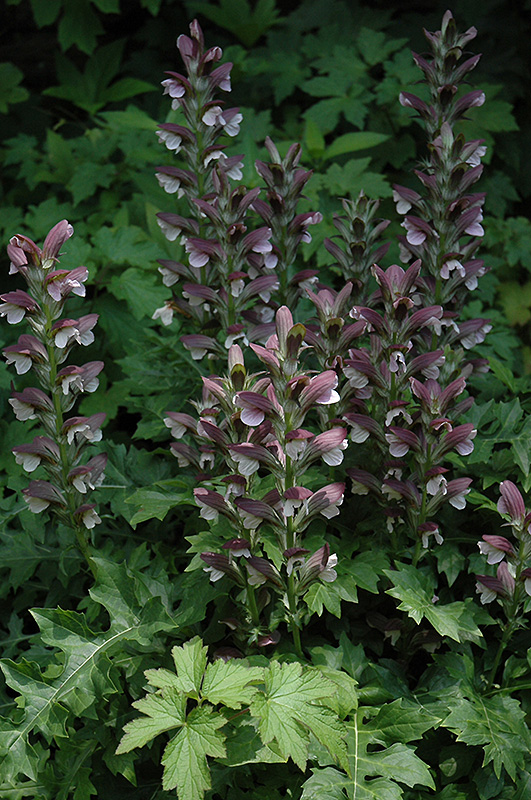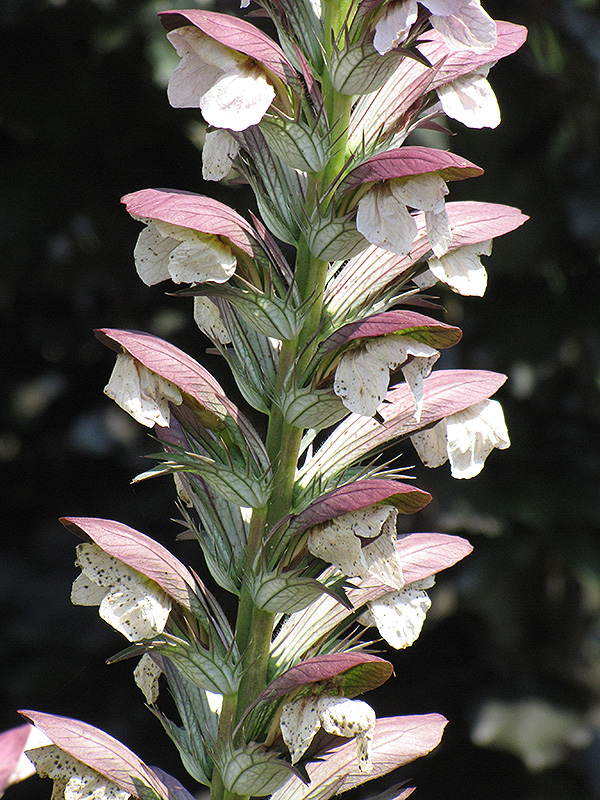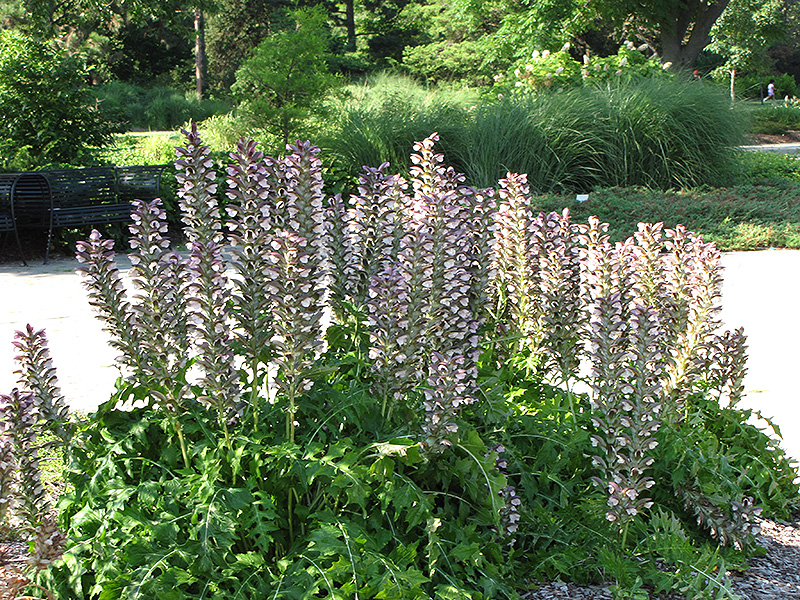Hungarian Bear's Breeches Acanthus hungaricus Plant Height: 3 feet Flower Height: 4 feet Spread: 3 feet
Sunlight:
Hardiness Zone: 6 Description: A bold specimen plant that is very popular with landscape designers; forms a clump of large mean-looking spiny leaves bearing dramatic upright spikes of hooded pink blooms; dislikes wet soil in winter; divide in spring, roots will develop into plants Ornamental Features Hungarian Bear's Breeches features showy spikes of shell pink hooded flowers with violet sheaths rising above the foliage from mid to late summer, which emerge from distinctive purple flower buds. The flowers are excellent for cutting. Its attractive large spiny lobed leaves remain dark green in color throughout the year. Landscape Attributes Hungarian Bear's Breeches is an open herbaceous evergreen perennial with a rigidly upright and towering form. Its wonderfully bold, coarse texture can be very effective in a balanced garden composition. This is a relatively low maintenance plant, and should be cut back in late fall in preparation for winter. It is a good choice for attracting bees and butterflies to your yard. Gardeners should be aware of the following characteristic(s) that may warrant special consideration; Hungarian Bear's Breeches is recommended for the following landscape applications; Planting & Growing Hungarian Bear's Breeches will grow to be about 3 feet tall at maturity extending to 4 feet tall with the flowers, with a spread of 3 feet. Its foliage tends to remain dense right to the ground, not requiring facer plants in front. It grows at a slow rate, and under ideal conditions can be expected to live for approximately 20 years. As an evegreen perennial, this plant will typically keep its form and foliage year-round. This plant does best in full sun to partial shade. It prefers dry to average moisture levels with very well-drained soil, and will often die in standing water. It is considered to be drought-tolerant, and thus makes an ideal choice for a low-water garden or xeriscape application. It is not particular as to soil type or pH. It is somewhat tolerant of urban pollution. Consider applying a thick mulch around the root zone in both summer and winter to conserve soil moisture and protect it in exposed locations or colder microclimates. This species is not originally from North America. It can be propagated by division. Hungarian Bear's Breeches is a fine choice for the garden, but it is also a good selection for planting in outdoor pots and containers. With its upright habit of growth, it is best suited for use as a 'thriller' in the 'spiller-thriller-filler' container combination; plant it near the center of the pot, surrounded by smaller plants and those that spill over the edges. It is even sizeable enough that it can be grown alone in a suitable container. Note that when growing plants in outdoor containers and baskets, they may require more frequent waterings than they would in the yard or garden. Be aware that in our climate, this plant may be too tender to survive the winter if left outdoors in a container. Contact our experts for more information on how to protect it over the winter months.![]()
![]()
![]()
![]()
![]()
![]()
![]()
![]()
![]()
![]()
![]()
![]()
![]()
![]()
![]()
Plant Finder
Characteristics
Applications
Features & Attributes



